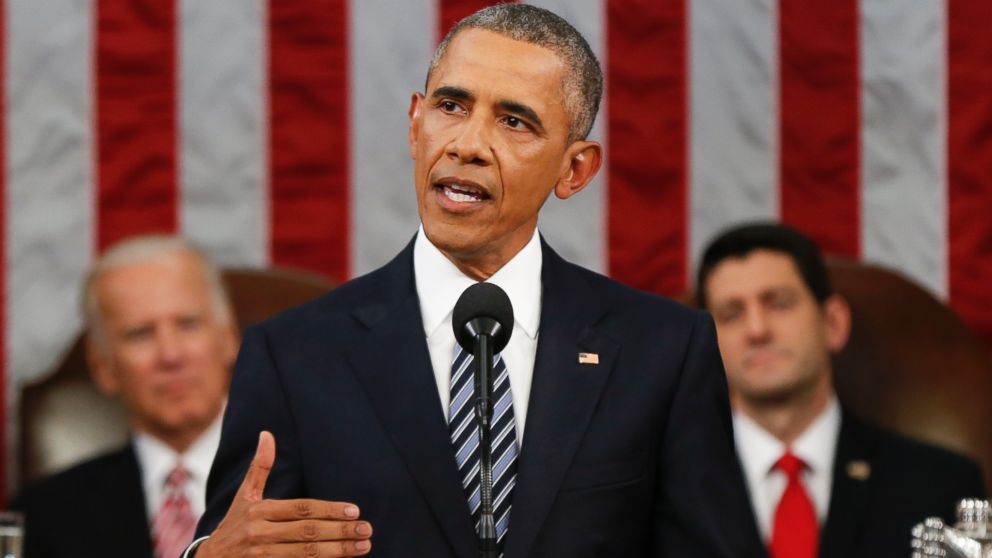
President Obama is planning to ask Congress for $755M in mandatory funds for new cancer-related research activities at both NIH and the Food and Drug Administration part of its National Cancer ‘Moonshot’ imitative. The Moonshot initiative will begin immediately with $195M in new cancer activities at the National Institutes of Health (NIH) in Fiscal Year 2016.
Over time, other agencies will make new investments in this effort, beginning with the Departments of Defense (DOD) and Veterans Affairs (VA) focused on specific cancers, and conducting large longitudinal studies to help determine risk factors and enhance treatment.
During his 2016 State of the Union Address, President Obama called on Vice President Biden to lead a new, national “Moonshot” initiative to eliminate cancer as we know it. Obama said:
“Last year, Vice President Biden said that with a new moonshot, America can cure cancer. Last month, he worked with this Congress to give scientists at the National Institutes of Health the strongest resources they’ve had in over a decade.
“Tonight, I’m announcing a new national effort to get it done. And because he’s gone to the mat for all of us, on so many issues over the past 40 years, I’m putting Joe in charge of Mission Control. For the loved ones we’ve all lost, for the family we can still save, let’s make America the country that cures cancer once and for all.”
With $1B in funding necessary for researchers to accelerate the development of new cancer detection and treatments, the National Cancer Moonshot investments will support cutting edge research opportunities such as:
– Prevention and Cancer Vaccine Development: Cancers caused by viruses can often be prevented by vaccinating people before they become infected, as demonstrated by the vaccine for cervical cancer and other cancers caused by human papilloma virus (HPV). Unique or signature genetic changes in cancers may also be targeted by cancer vaccines. We will speed the development, evaluation, and optimization of safe cancer vaccines targeting unique features of individual cancers.
– Early Cancer Detection: Recent advances in genomic and proteomic technologies have greatly increased the sensitivity of methods to detect markers of cancer – raising the possibility of using such methods for screening and early detection of cancer. NIH will invest in the development and evaluation of minimally invasive screening assays to enable more sensitive diagnostic tests for cancer.
– Cancer Immunotherapy and Combination Therapy: This initiative will work to extend the early successes of immunotherapy for cancer treatment to virtually all solid tumors by harnessing the power of the body’s immune system by supporting basic research to increase understanding of how the immune system can be used to modify cancer cells and their activities. In addition, the initiative aims to develop and test new combination therapies.
Working with health care providers in the community, as well as through existing clinical trials networks, new approaches to prevent and treat cancer will be tested more quickly and efficiently, with special emphasis made to include under-represented populations. This outreach would also include concerted efforts to narrow cancer health disparity gaps by increasing utilization of standard of care recommendations for cancer prevention, screening, and treatment.
– Genomic Analysis of Tumor and Surrounding Cells: A greater understanding of the genetic changes that occur within the cancer cell, and in surrounding and immune cells responding to the cancer, will advance both immunotherapy and targeted drug therapy and help lead to an increased ability to enhance patient response to therapy.
– Enhanced Data Sharing: Data sharing can break down barriers between institutions, including those in the public and private sectors, to enable maximum knowledge gained and patients helped. The cancer initiative will encourage data sharing and support the development of new tools to leverage knowledge about genomic abnormalities, as well as the response to treatment and long-term outcomes.
– Oncology Center of Excellence: The FDA will develop a virtual Oncology Center of Excellence to leverage the combined skills of regulatory scientists and reviewers with expertise in drugs, biologics, and devices. This center will expedite the development of novel combination products and support an integrated approach in:
– evaluating products for the prevention, screening, diagnosis, and treatment of cancer;
– supporting the continued development of companion diagnostic tests, and the use of combinations of drugs, biologics and devices to treat cancer; and
– developing and promoting the use of methods created through the science of precision medicine.
– Pediatric Cancer: New technology to develop drug libraries and screens for inhibitors against a wide variety of targets will find new therapies, which will be of particular benefit for pediatric populations. The initiative will intensify efforts to collect and analyze tumor specimens from the rarest childhood cancers, enlisting participation from the pediatric oncology community. Clinical data about course of disease and response to therapy will also be included to enable the research community to develop new approaches to treat childhood cancers.
– Vice President’s Exceptional Opportunities in Cancer Research Fund: To launch the National Cancer Moonshot, scientists, cancer physicians, advocates, philanthropic organizations, and representatives of the biotechnology and pharmaceutical industry will need to work together to focus on major new innovations in the understanding of and treatment for cancer.
The work that the Vice President will be undertaking will ensure just that – bringing together all parties, breaking down silos, and sharing data to generate new ideas and new breakthroughs. This proposed new fund will be focused on high-risk, high-return research identified by the collaborative work and new ideas stimulated by the research community as part of this work.
